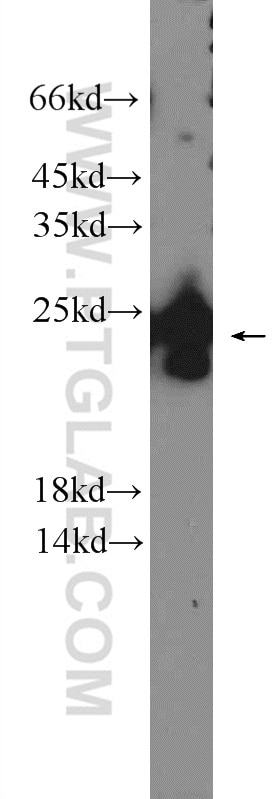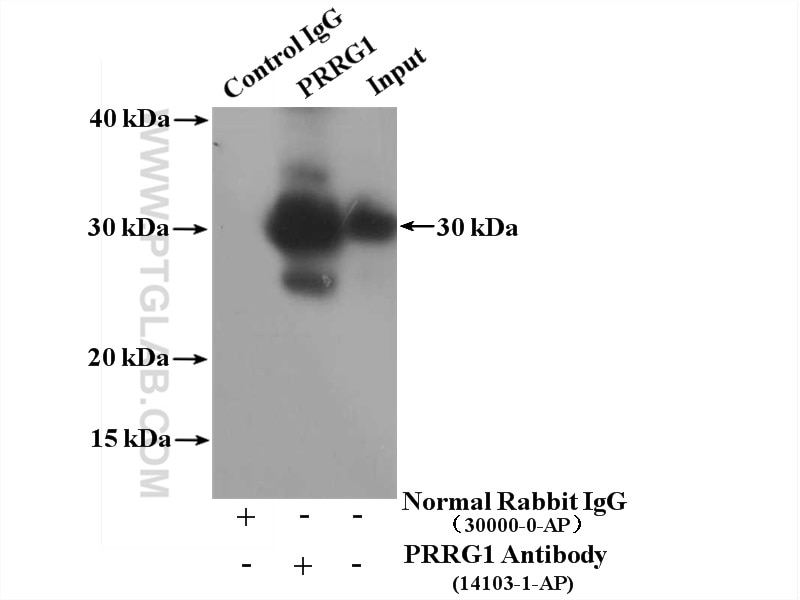Tested Applications
| Positive WB detected in | HepG2 cells |
| Positive IP detected in | HepG2 cells |
Recommended dilution
| Application | Dilution |
|---|---|
| Western Blot (WB) | WB : 1:500-1:1000 |
| Immunoprecipitation (IP) | IP : 0.5-4.0 ug for 1.0-3.0 mg of total protein lysate |
| It is recommended that this reagent should be titrated in each testing system to obtain optimal results. | |
| Sample-dependent, Check data in validation data gallery. | |
Published Applications
| KD/KO | See 1 publications below |
| WB | See 1 publications below |
Product Information
14103-1-AP targets PRRG1 in WB, IP, ELISA applications and shows reactivity with human, mouse, rat samples.
| Tested Reactivity | human, mouse, rat |
| Cited Reactivity | human |
| Host / Isotype | Rabbit / IgG |
| Class | Polyclonal |
| Type | Antibody |
| Immunogen |
CatNo: Ag5236 Product name: Recombinant human PRRG1 protein Source: e coli.-derived, PGEX-4T Tag: GST Domain: 102-218 aa of BC060833 Sequence: WRCFLRNKTRRQTVTEGHIPFPQHLNIITPPPPPDEVFDSSGLSPGFLGYVVGRSDSVSTRLSNCDPPPTYEEATGQVNLQRSETEPHLDPPPEYEDIVNSNSASAIPMVPVVTTIK Predict reactive species |
| Full Name | proline rich Gla (G-carboxyglutamic acid) 1 |
| Calculated Molecular Weight | 218 aa, 23 kDa |
| Observed Molecular Weight | 24 kDa |
| GenBank Accession Number | BC060833 |
| Gene Symbol | PRRG1 |
| Gene ID (NCBI) | 5638 |
| RRID | AB_2878013 |
| Conjugate | Unconjugated |
| Form | Liquid |
| Purification Method | Antigen affinity purification |
| UNIPROT ID | O14668 |
| Storage Buffer | PBS with 0.02% sodium azide and 50% glycerol, pH 7.3. |
| Storage Conditions | Store at -20°C. Stable for one year after shipment. Aliquoting is unnecessary for -20oC storage. 20ul sizes contain 0.1% BSA. |
Protocols
| Product Specific Protocols | |
|---|---|
| IP protocol for PRRG1 antibody 14103-1-AP | Download protocol |
| WB protocol for PRRG1 antibody 14103-1-AP | Download protocol |
| Standard Protocols | |
|---|---|
| Click here to view our Standard Protocols |






